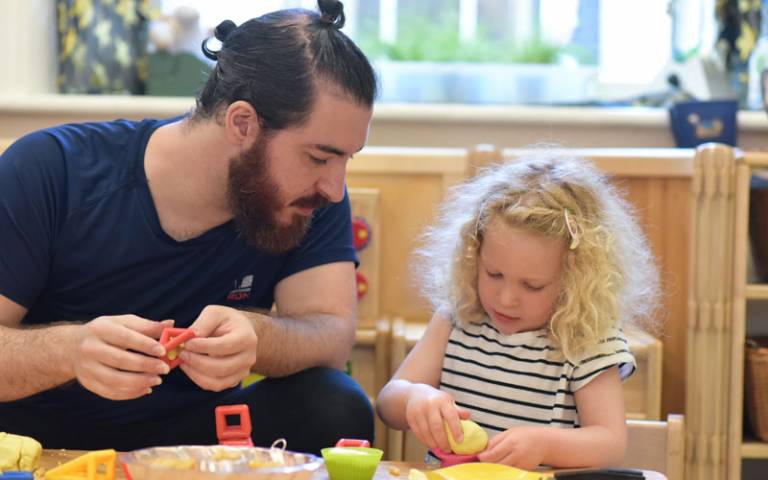Guidance to help prepare young people returning to school published
29 May 2020
Young people should be actively involved in planning for their return to school, according to UCL Institute of Education (IOE) academic Vivian Hill, and other psychologists.

The British Psychological Society guidance that Hill, programme director of the Educational Psychology (Professional Educational, Child and Adolescent Psychology) DEdPsy at the IOE, and others have compiled aims to support the psychological needs of children as they prepare to go back to school during the pandemic.
The authors suggest that proactively involving children through activities such as drawing a picture of their ideal safe school, or writing down their hopes and concerns, can reignite a sense of belonging and reduce their anxiety.
‘Back to School: using psychological perspectives to support re-engagement and recovery’ complements the UK and national government advice on the return to school for pupils during the pandemic and offers a psychological perspective on the process of re-engaging children and young people with school.
It considers the challenges at government, community, school, family and child levels, and offers recommendations for action.
Emphasising the need to recognise the multiple roles that schools play in the life of a child, family and community, the paper urges professionals to think of the school as part of a wider system. It highlights the importance of supporting the view that everyone in that system has their part to play, from the individual through to government departments, to help ease the transition back to school-based learning.
One of the paper’s recommendations includes establishing an implementation team to organise and monitor new systems and structures and identify families that might need extra support. Families who might have experienced trauma and loss should be invited to come forward in confidence.
There is also guidance for children who are transitioning in the early years, from primary to secondary school, and from secondary to post-16 education.
As most learning has moved online during lockdown, the team also recommend that policy makers urgently address digital exclusion with the provision of free universal internet access, ramping up the allocation of IT to families without adequate resources and increasing television based learning opportunities.
Vivian Hill, programme director of professional educational psychology training at the IOE and chair of the BPS division of educational and child psychology, said: “COVID-19 has forced us all to face big, unexpected transitions in our everyday lives, not least for children who haven’t been to school during the pandemic. Heading back to school as lockdown eases is a key transition that needs to be carefully considered for all involved in the process, with children’s needs and wellbeing placed at its heart.
“Understandably, any child returning to school may experience a range of emotions, from feeling happy, excited and relieved to be back, to feeling anxious, afraid or angry. In most cases a whole community response aimed at promoting positive reintegration and building resilience will help to resolve their difficulties. For others, the use of school-based social emotional and mental health resources and expertise may be needed.
“We hope our guidance offers professionals the psychological insights and key recommendations they need as they plan for children’s return to school and that they can use them to help reduce the stresses this transition could pose to create positive new beginnings.”
Links
- Back to School: using psychological perspectives to support re-engagement and recovery
- British Psychological Society
- View Vivian Hill’s research profile
- Department of Psychology and Human Development
- COVID-19 research at UCL Institute of Education
 Close
Close

